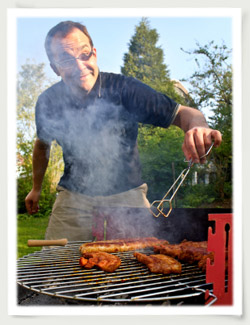
BBQ health and safety tips
Posted in Food & Nutrition on June 3, 2012. Last modified on April 30, 2019. Read disclaimer.
Summer is here; the perfect time to barbecue! Before you fire-up the grill, however, bone-up on these health and safety suggestions.
Make sure that your grilled meals are healthy meals
Is it done yet?! Carelessly prepared BBQ's can easily result in stomach aches, diarrhea, vomiting... or even worse. To avoid serving undercooked meats, test with a thermometer before removing meats from the grill. Harmful harmful bacteria has been destroyed when internal meat temperatures reach:
- Fish: 145 °F or until meat is opaque (no longer shiny and clear) and flakes easily.
- Steak, chops and roasts: 145 °F (After removing from grill, allow it to rest for a few minutes before serving.)
- Hamburger and other ground meats: 160 °F
- Chicken and other poultry: 165 °F
Will you be using a gas or charcoal grill? Fortunately, the US Consumer Product Safety Commission has prepared important and quick-to-read safety fact sheets for each: Gas Grill Fact Sheet and Charcoal Grill Safety Tips.
Be equally careful not to overcook the dinner. Grilling meats at high heat can cause carcinogens such as heterocyclic amine (HCA) and polycyclic aromatic hydrocarbons (PAHs) to form. Try medium rare rather than charred and well done. Lining the grill with aluminum foil (with small punctures for drainage) will help prevent fire flare ups.
+ Free Shipping & Returns on Eligible Items.
(*Amazon's Top 100 list updated hourly.)
Avoid cross contamination. Keep raw and cooked foods separate and be conscious not to double use serving plates and utensils. Wash your hands frequently, especially before you touch food and between making different dishes. Keep ingredients cool up to the point of cooking and put unserved foods back in the cooler on ice promptly to slow bacteria growth.
If you marinate, keep it simple: To flavor meat, marinate it in a plastic bag for a few hours and go bold on flavor. It is good to add a little bit of sweetness, but not too much. Too much sweet in the meat ruins all the other marinade spices. Chili a good addition to any marinade and it has been shown to cut the risk of cancer. You may want to try some red wine in the marinade as it breaks apart the proteins making for tender BBQ. There is no need to marinate overnight for great BBQ, just a few hours will give great results.
Don't forget the grilled veggies. Many vegetables taste wonderful when grilled and they require very little work. Some of our favorite vegetables to BBQ include:
• mushrooms
• corn on the cob
• eggplant
• zucchini
Just cut vegetables into large chunks or long pieces (so they don't fall through the grill). You can marinate most vegetables like meat or coat them in olive oil. Fresh items will take about 10 minutes to cook and should be turned occasionally. For a treat, thread the veggies along with meat chunks onto kabobs!
Preheat the grill. A properly heated grill will sear the foods on contact, keeping them moist inside and helping to minimize sticking.
Turn meats as little as possible. This, along with using a spatula rather than a fork, will help the meats retain their juices. The less juices and fat that drip, the less chance of creating a flare up or excess smoke.
Once meats are done, transfer them to a clean platter and allow them to rest under a loose "tent" of foil for 5 minutes. This allows the juice to be reabsorbed by the meat so that less is lost when cutting. Those few minutes of rest will result in juicer, more tender meats.
Skip the potato salad and other high fat side dishes. Low fat side dishes like spinach or kale add nutrition and unexpected flavor to the meal. If you are smart in your food accompaniment choices you will find you need to grill less meat to keep guests satisfied.
When shopping for ingredients remember healthier animals make healthier meat. Read the labels and ask questions. Look for indications the meat is grass fed, organic, and/or free range. When planning to serve fish you can choose wild fish or organic fish farmed to reduce your consumption of mercury and other environmental toxins. With chicken, cut the fat content in half by taking off the skin. Choose lean cuts of pork and beef that have a swirl of fat but are mostly lean. Skip the processed meat such as hot dogs, sausage, and bacon for best health.
Barbecue and booze can make for a dangerous combination. With warm weather, good friends and delicious food, barbecues are perfect for parties, which often may includes alcohol. Obvious concerns associated with alcohol include, accidents driving home afterwards (remember, blood alcohol levels continue to rise even after a person has stopped drinking), birth defects associated with women drinking while pregnant, possible medication conflicts, and even alcohol poisoning (which may cause unconsciousness, disrupted or stopped breathing and/or heart beat, vomiting, inability to swallow, severe dehydration, permanent brain damage or death) as a result of binge drinking.
Safety around the barbecue
The last thing anyone wants while grilling with friends and family are injuries. Here are few points to keep in the back of your mind and make part of your routine.
- Be safe with fire. Have a fire extinguisher (for gas grills) or water (for charcoal grills) and burn cream handy. Make someone the "fire keeper" for designated responsibility.
- Know your grill. Read the manual to avoid unwanted mistakes.
- Give the grill some room. Make sure it is away from flammables and people.
- Check all the hoses if your grill is gas. Examine moving parts for damage and function. Gas line problems are a leading cause of injury when grilling.
- Steer clear of the smoke. No matter how good it smells, smoke from the BBQ contains lung-damaging PAHs.
- Dress for grilling success. Wear clothes that protect your skin and don't hang off. If you hair is long, tie it up.
Barbecuing can be a wonderful bonding experience and provide memories for years to come. By putting some forethought into health and safety you can rest assured the event runs smoothly.
References:
http://www.webmd.com/food-recipes/features/10-healthy-ideas-lean-barbecue-season?page=1
http://www.health.com/health/gallery/0,,20400685,00.html
http://www.thedailygreen.com/healthy-eating/eat-safe/healthy-vegetarian-bbq-47070104
http://bbq.about.com/od/grillinghelp/tp/grillsafety.htm
http://www.selby.gov.uk/service_main.asp?menuid=&pageid=&id=445
http://www.cdc.gov/Features/SummertimeSafety/
http://geoparent.sheknows.com/articles/84/bbq-safety-tips-1
http://www.health.ny.gov/environmental/indoors/food_safety/barbecue.htm
http://www.health.gov/dietaryguidelines/dga2005/document/html/chapter10.htm
http://www.fsis.usda.gov/factsheets/barbecue_food_safety/index.asp#8
http://www.dhs.wisconsin.gov/wic/cards/fmnp/pph40043.pdf
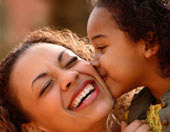 How being in love can effect our health
How being in love can effect our health How to cut onions without crying
How to cut onions without crying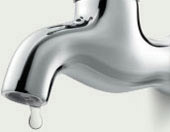 Hidden toxins in our homes and schools
Hidden toxins in our homes and schools Strategy for success with New Years resolutions
Strategy for success with New Years resolutions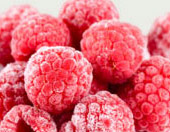 Tips for properly freezing foods
Tips for properly freezing foods Importance of strength training for seniors
Importance of strength training for seniors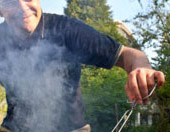 BBQ health and safety tips
BBQ health and safety tips Attracting butterflies to your garden
Attracting butterflies to your garden Teaching values to our kids
Teaching values to our kids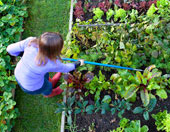 Guide to beginning a vegetable garden
Guide to beginning a vegetable garden Attracting birds and hummingbirds
Attracting birds and hummingbirds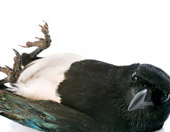 How to prevent birds from flying into glass windows
How to prevent birds from flying into glass windows When to take a child to the hospital
When to take a child to the hospital